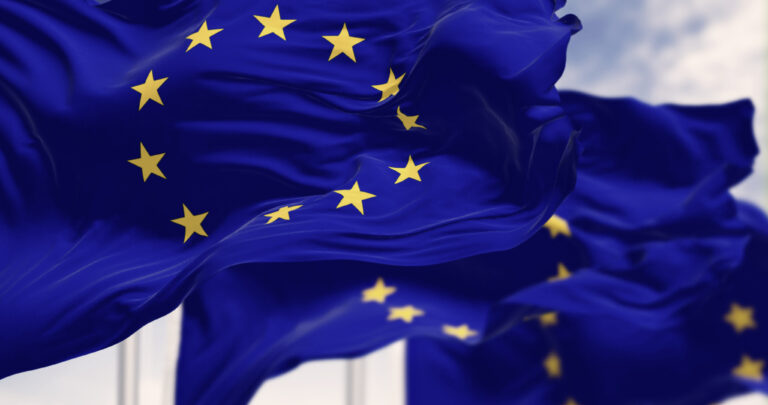Add to favorites:
Share:
Submission & evaluation process
Projects can be submitted through https://NLnet.nl/propose, please check this page as well as the guide for applicants before you start writing a proposal - this might save you a lot of work.
Anyone can apply, including private individuals and organisations of any type. Project proposals should be in line with the NGI vision and should have research and development as their primary objective. Proposals should be complete and concise (no longer than the equivalent of two pages for the main application, see the submission form). Proposals should have a clear European dimension.
Projects are scored on a 7 point scale on three criteria: technical merit, strategic relevance to the Next Generation Internet and overall value for money. The key objective is to deliver potential break-through contributions to the open internet. Projects will need a total weighted score above 5.0 (out of 7) in order to be selected.
The following types of activities qualify for financial support, provided they are cost effective and have a clear link to the topics directly relevant to digital commons and the objectives set out in the NGI0 Commons Fund call:
- scientific research
- design and development of open source software and open hardware
- validation or constructive inquiry into existing or novel technical solutions
- software engineering aimed at adapting to new usage areas or improving software quality
- formal security proofs, security audits, setup and design of software testing and continuous integration
- documentation for researchers, developers and end users, including educational materials
- standardisation activities, including membership fees of standards bodies
- understanding user requirements and improving usability/inclusive design
- necessary measures in support of (broad)er deployability, e.g. packaging
- participation in technical, developer and community events like hackathons, IETF, W3C, RIPE meetings, FOSDEM, etc. (admission fee, travel and subsistence costs)
- other activities that are relevant to adhering to robust software development and deployment practices
- project management
- out-of-pocket costs for infrastructure essential to achieving the above
All scientific outcomes must be published as open access, and any software and hardware must be published under a recognised free and open source license in its entirety.
Further information
A more complete overview of the call text and proposal guidelines can be found on the official project web site: https://NLnet.nl/commonsfund
Task description
NGI0 Commons Fund, co-funded from the European Union's Horizon Europe research and innovation programme under grant agreement No 101135429, foresees as an eligible activity the provision of financial support to third parties, as a means to achieve the objectives of the Next Generation Internet initiative and to contribute to a resilient, trustworthy and sustainably open internet.
It is clear that the commons model works, and continues to gain ground. Free and open source software and hardware, open standards, open data & AI, open science, creative commons and open educational resources are democratising innovation and learning, and are together driving society and industry forward at an unprecedented pace. But it is also obvious that there are major gaps that need to be fixed still. The answer to market failure and dystopian runaway technology lies in collective action and public investment.
This is where NGI Zero Commons Fund come into play. The goal of this new fund is to help deliver, mature and scale new internet commons across the whole technology spectrum, from libre silicon to middleware, from P2P infrastructure to convenient end user applications. We have a holistic, full-stack approach, simply because there is no other way. If we want to reclaim the public nature of the internet and yield the full benefits from technology as a society, we need to have full coverage — period.
Only though enough critical mass of shared building blocks and collective resources will our governments, businesses and civil society be able to secure their security and long term operational availability. The same approach that empowers individuals to take full control of their digital lives, will also steer towards more fair, innovative economies and societies. So let's make it happen!
The changes we want to see are vast, and there is much technical debt to resolve as well. We are looking for troubleshooters that help society tackle the hard but very very important challenges ahead. Ultimately we believe in the power of the quadruple helix — the collaboration of the public sector, aligned companies, academia and civil society — to restore the internet (and our economies) back to health. Together we can create a strong and open internet for all, and bring about new paradigms like the European Commissions vision for Web 4.0 which aim to harness upcoming techologies like virtual and augmented reality, generative AI and intelligent mediators in a responsible way so they may sustainably serve society.
We need new ideas and disruptive technologies, while at the same time evolving and growing existing technologies that are still future-proof.
Have a look at other NGI Zero programmes to see the kind of efforts we mean, but don't be afraid to send something completely different if you think you can contribute to the topic — it really is an open call.
Project results always become available under a free or open source license, so anyone can read and validate the source code, and anyone can use the code or open data to create solutions that fits their own purposes. The right to reuse and right to repair not only allow for unrestricted scrutiny and permissionless innovation, but also help to reduce e-waste. And the use of standards enables interoperability and redundancy in implementation to reduce the risk of compromise and failure.
NGI0 Commons Fund is made possible with financial support from the European Commission's Next Generation Internet programme, under the aegis of DG Communications Networks, Content and Technology.
Additional funding is made available by the Swiss State Secretariat for Education, Research and Innovation (SERI).

